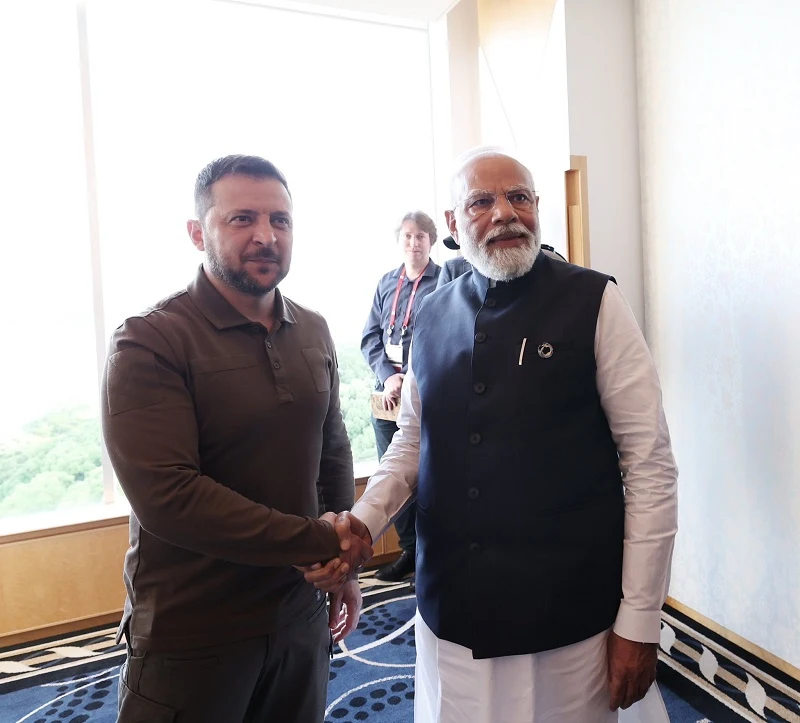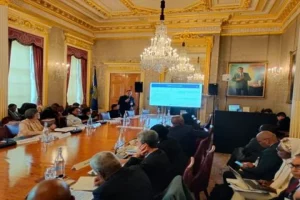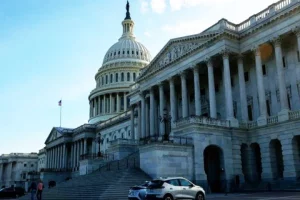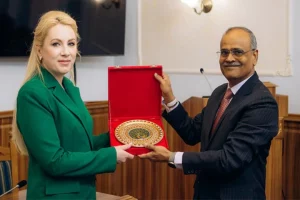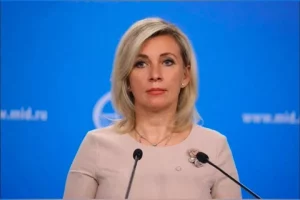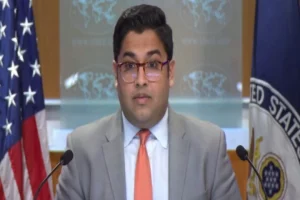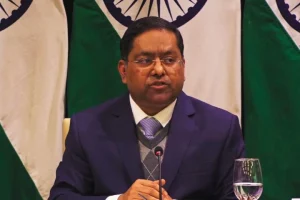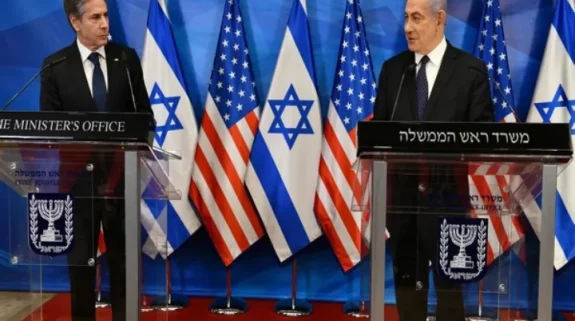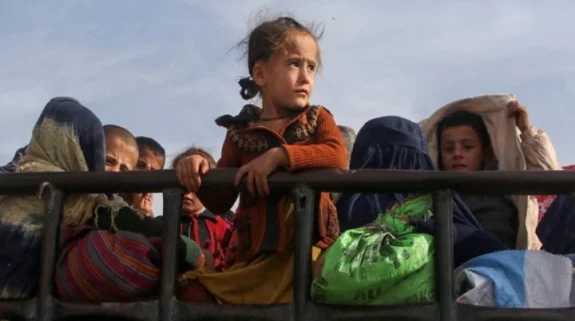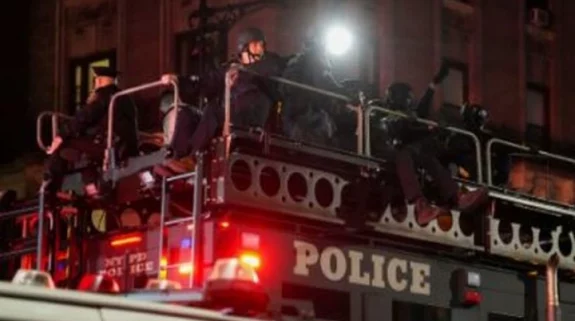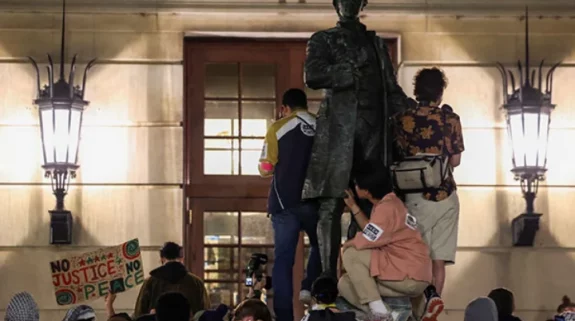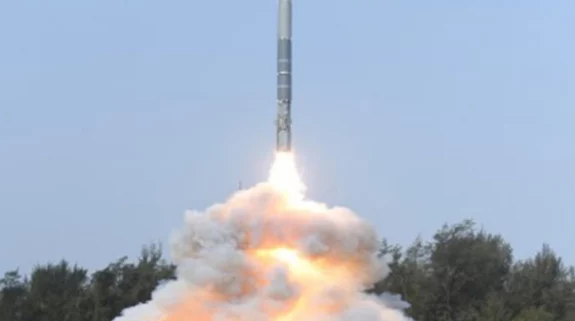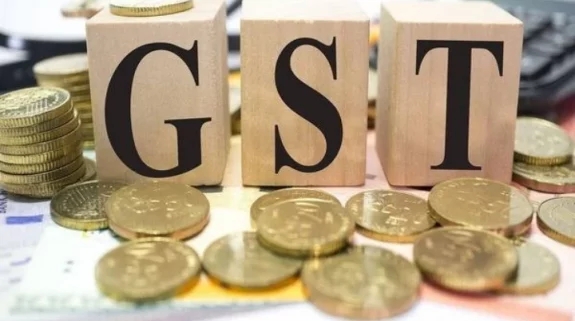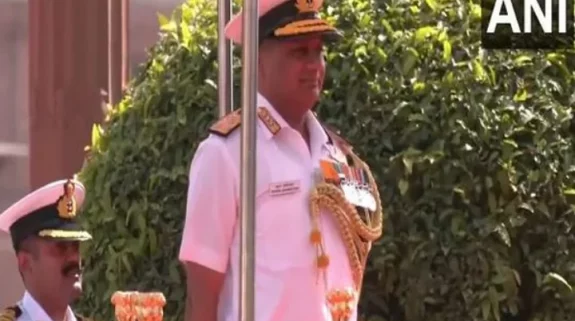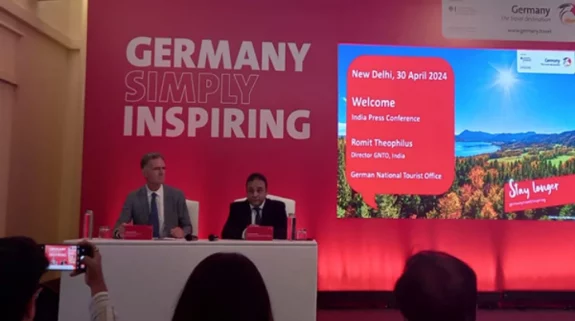Hailed by the developing countries as a key leader of the Global South, India could be playing a major role in the implementation of a ‘peace formula’ to end the ongoing conflict between Russia and Ukraine.
At the initiative of Kyiv, a meeting of diplomats from the Western countries, along with representatives of India – the current chair of G20 – Brazil, and South Africa, was held in Copenhagen over the weekend to find a concrete settlement to end the ongoing war which has claimed thousands of lives on both sides since February 2022.
Citing a German TV channel report, Russian state-owned news agency Tass said that the June 24 meeting in Denmark’s capital took place “in the strictest secrecy” and that the official negotiations to resolve the conflict in Ukraine may take place as early as July.
“The TV channel (ARD) noted that the goal of the West was to enlist the support of these BRICS countries, which still remain neutral in the situation around Ukraine,” it said.
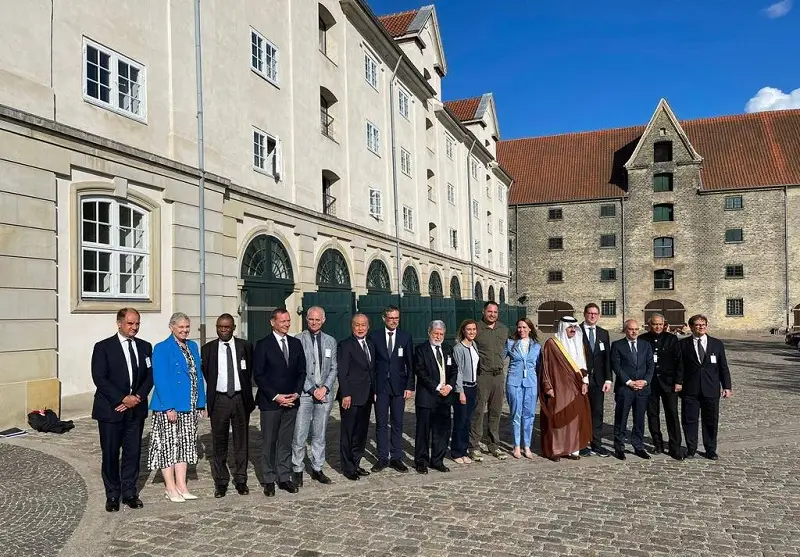
It is believed that US President Joe Biden’s National Security Advisor Jake Sullivan, who was earlier scheduled to travel to Copenhagen, attended the meeting virtually.
India’s participation through Sanjay Verma – Secretary (West) at the Ministry of External Affairs – in the key gathering in the Danish capital comes on the heels of Prime Minister Narendra Modi’s meeting with Ukrainian President Volodymyr Zelensky on the sidelines of the G7 Summit in Hiroshima on May 20 and Andriy Yermak, one of Zelensky’s key aides, dialing National Security Advisor (NSA) Ajit Doval earlier this month.
After the Copenhagen meeting, Yermak wrote on his Telegram channel that consultations on key peace principles were held with national security and political advisers from Brazil, Great Britain, Denmark, EU, Italy, India, Canada, Germany, South Africa, Saudi Arabia, USA, Turkey, Ukraine, France, and Japan.
The meeting, he said, is a continuation of the dialogue that was started at the G7 Summit in Hiroshima between the leaders of Ukraine, the Group of Seven countries, and the Global South.
The Ukrainian delegation consisted of a team from Zelensky’s office and the Ministry of Foreign Affairs.
“The participation of a significant number of countries of the Global South demonstrates that significant positive changes are taking place in the relations between our countries and a qualitatively new level of mutual relations. I am grateful for the support of our Western allies,” wrote Yermak.
Kyiv is also planning to hold a ‘Global Peace Summit’ which could take place after the NATO Summit in Lithuania on July 11-12.
Yermak, who is the head of the Ukrainian president’s office, said that the security and political advisers of participating countries agreed that the consultation format was a good platform to continue work and can be further developed by holding a Global Peace Summit in the future.
“I was informed of sites that could become a potential venue for the Global Peace Summit. I first proposed Ukraine as the most desirable option for us. By the way, many countries have already expressed their readiness to host this summit, including such international venues as the UN General Assembly,” he wrote on his Telegram channel.
Also Read: In Hiroshima, Zelensky briefs PM Modi on Ukrainian ‘Peace Formula’ to end war with Russia
In March, Danish Foreign Minister Lars Lokke Rasmussen offered to host the summit, which he said would need efforts from some countries, including India.
“If Ukraine finds that the time has come to have such a meeting, that would be fantastic. And then Denmark would obviously like to host the meeting… It is necessary to build interest and involvement from countries like India, Brazil, and China,” said Rasmussen.
Interestingly, just a week ahead of the Copenhagen meeting, Yermak dialled NSA Ajit Doval to discuss preparations for the ‘Global Peace Summit’ and follow up on the discussions held between PM Modi and the Ukrainian President – the first meeting between the two leaders after the start of the Russia-Ukraine conflict – in Hiroshima in May.
“The main topic of the conversation was the implementation of the Ukrainian peace formula, in particular the consolidation of international support for the Ukrainian peace plan and the possibility of India joining the implementation of its individual points,” said Zelensky’s office in a statement released after the telephone conversation on June 13.
Yermak also noted the need to involve the widest possible range of countries, in particular the Global South, to participate in the event.
In Hiroshima, as Zelensky briefed him on the current situation, PM Modi had once again conveyed India’s clear support for dialogue and diplomacy to find a way forward and said that for a resolution of the situation, India and he personally would do everything within the means.
President Zelensky: “As part of my visit to Japan and participation in the G7 Summit, I met with Prime Minister of India Narendra Modi. During the meeting I spoke about Ukraine’s needs in humanitarian demining and mobile hospitals. I briefed Narendra Modi in detail on the… pic.twitter.com/Cbi6gbsFjK
— Dénes Törteli 🇪🇺🇭🇺🇺🇦 (@DenesTorteli) May 20, 2023
Countries across the Caribbean, Africa, and the Pacific Ocean continue to count on India as reliable partner after New Delhi maintained that, as the trajectory of the Ukrainian conflict unfolds, the entire global south has suffered substantial collateral damage.
At the recent Forum for India–Pacific Island Cooperation (FIPIC) Summit held at Port Moresby in Papua New Guinea, the Pacific Island leaders insisted that they are “victims of global powerplay” and called on PM Modi to amplify their concerns at the bigger forums.
“You are the voice that can offer our issues at the highest as advanced economies discuss matters relating to economy, commerce, trade, and geopolitics,” said PNG Prime Minister James Marape.
“We want you to be an advocate for us. As you sit in those meetings and continue to fight for the rights of small emerging nations and emerging economies,” added Marape stressing that he is speaking for other “small brother and sister nations” of the Pacific.
India’s efforts to drive South-South cooperation and build a truly multipolar world order which is more responsive to the aspirations of developing countries will only increase in the coming weeks as it hosts the G20 Leaders’ Summit for the first time in September.






